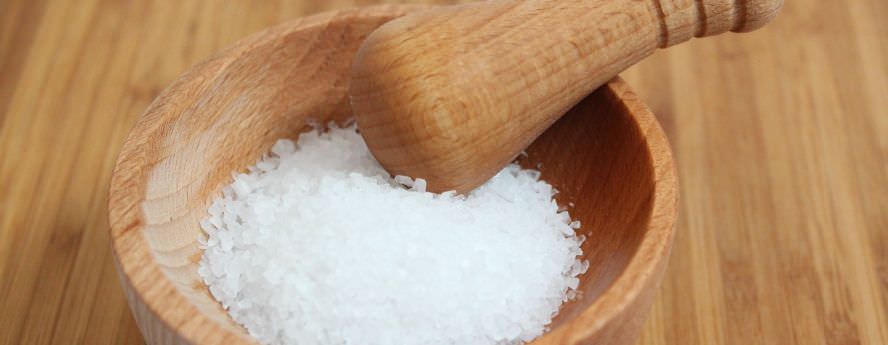
Our bodies use salt to maintain our fluid levels, a balance of fluid and sodium is necessary for the health of our hearts, livers and kidneys. Sodium is also needed for muscle and nerve function. But a diet which is high in salt can cause raised blood pressure, which may put us at risk of heart disease and stroke.
Daily recommendation
Sodium – one of the main chemicals in salt – is found in nearly everything we eat and drink. It occurs naturally in many products but is often added during the manufacturing process, cooking or at consumption. With sodium being linked to high blood pressure, guidelines are in place to help us control our intake.
The NHS state that adults should eat no more than 6g of salt a day (2.4g sodium) – this is around 1 teaspoon. Some food labels may only state the sodium content, so to convert sodium to salt, we need to multiply the sodium amount by 2.5.
The risks
The NHS reports that around a third of adults in the UK have high blood pressure, although they may not realise. If the condition is left untreated, it increases the risk of serious problems. If our blood pressure is too high, it could put a strain on our blood vessels and other organs, such as the brain, kidneys and eyes.
An increase in blood pressure may be caused by us consuming too much salt. Blood Pressure UK states that salt works on the kidneys to make our bodies retain more water, however, the extra stored water raises our blood pressure and puts strain on our arteries and organs.
With the extra pressure in our blood, our arteries may adapt to cope with the strain. In doing this, they may become stronger and thicker, but they become narrower, which increases the pressure more. When this happens, the organs in our bodies may start to become starved of oxygen and nutrients, which can result in damage and may be fatal.
Coronary Heart Disease
Having a high blood pressure can lead to coronary heart disease (CHD), this is the term used to describe what happens when the blood supply to the heart is either reduced or becomes blocked. This could potentially lead to either heart attacks and/or heart failure. The thickening of the arteries as a result of high blood pressure could in turn lead to a reduction in heart pumping and, in severe cases, it can lead to cardiovascular disease.
Stroke
If the blood flow to the brain is interrupted, brain cells may get damaged due to a lack of oxygen and a stroke may occur. If our blood pressure is high, it could increase our chances of having a stroke due to our blood vessels being at risk of bursting or blocking.
Our salt intake
Surprisingly, around 75% of the salt we eat is already in everyday foods such as bread and cereal, meaning we don’t have to be adding salt to our food to be eating too much of it. The NHS recommends the following to help reduce our salt intake:
- Don’t automatically salt food, whether you are at home, cooking or out, taste it first.
- Read and compare nutrition labels on food packaging when buying everyday items.
- Choose fruit or vegetables as snacks.
- Add flavours to your cooking that aren’t salt such as pepper, fresh herbs and spices.
- Effervescent (dissolvable) vitamin supplements or effervescent painkillers could add up to 1g of salt per tablet, consider changing to non-effervescent.
At first it may be difficult to adjust to a diet with less salt, but after a few weeks our taste buds will change and we may begin to enjoy food with reduced sodium.
It’s important to note that sodium is an essential nutrient that our bodies need for many important functions, but a diet high in salt is linked to problems with our blood pressure. The World Health Organisation estimates that 2.5 million deaths could be prevented each year if our global salt consumption were reduced to the recommended level. Remember, high blood pressure often has no symptoms, therefore it’s important to be aware of our intake.
Disclaimer: The content of this website is provided for informational purposes only and does not substitute the medical advice from a healthcare professional.